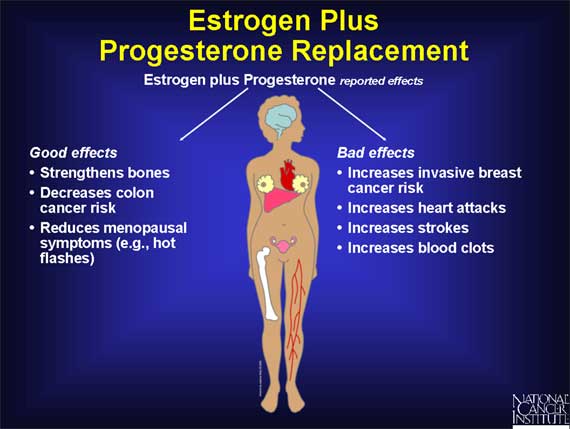|
Studies carried out in the 1980s suggested that adding the hormone progesterone to estrogen can offset the increased risk of uterine cancer linked to the use of estrogen by itself. For this reason, hormone replacement therapy using estrogen plus progesterone became a common way of treating women with menopausal symptoms.
However, a study of 16,000 menopausal women carried out by the Women's Health Initiative was prematurely halted in 2002 when preliminary results indicated that the harm associated with this type of treatment outweighs the potential benefits. The major risks detected were an increased chance of developing invasive breast cancer, as well as an increased risk of strokes, heart attacks, and blood clots. While the data also revealed that hormone replacement with estrogen plus progesterone lowered the risk of osteoporosis and colon cancer, these benefits were not considered to be sufficient to outweigh the other risks.

< Previous | Index | Next Slide > |